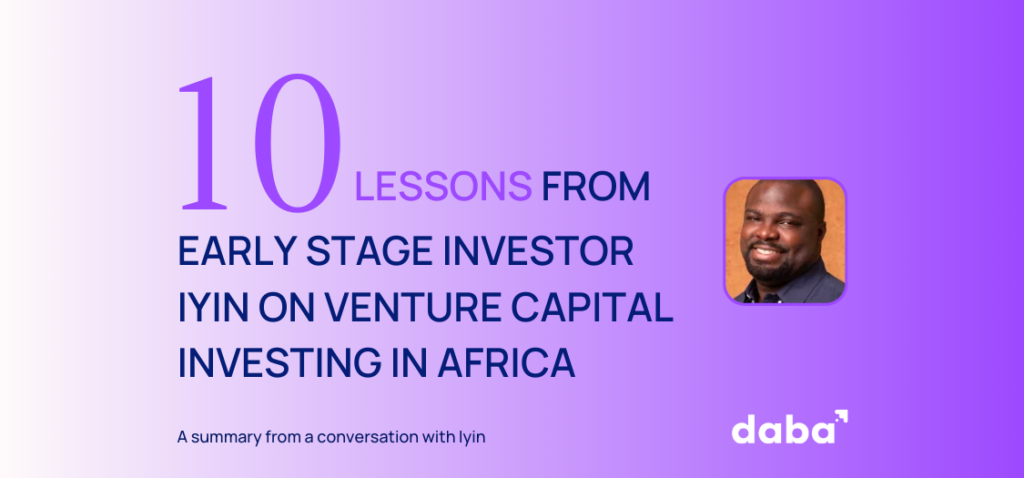Becoming an Investor: Do it Yourself or via a Venture Fund?
4 min Read January 21, 2024 at 8:34 PM UTC

Early-stage companies drive innovation but need money to grow.
For those looking to invest in exciting startups, there are two main options: angel investing and venture capital funds.
Figuring out these choices can be hard. However, understanding their benefits and drawbacks can help you make the best decision for your goals.
Let’s compare these paths and see what might work for you.
Who is an angel investor?
An angel investor uses their own money to invest in an early-stage startup, getting a share of ownership in return.
Being an angel takes dedication. It means working directly with startups, often when they first launch. This is very risky but has big potential rewards.
Pros of angel investing
1. Hands-on: If you connect with founders, you can get firsthand experience and actively help the business grow using your knowledge and connections.
2. Possible high returns: While some investments fail, smart choices and luck can result in huge returns on your money. For example, investing $50,000 in a startup could turn into $5 million.
3. Exciting: If you love the thrill of working with groundbreaking startups and founders, angel investing provides an exhilarating opportunity.
Cons of angel investing
1. High risk: Many investments fail, so you need to be ready to potentially lose money. You may invest $50,000 and end up with nothing.
2. Time-consuming: Being actively involved is crucial, requiring significant time and effort. After reviewing pitches and due diligence, you still need to work closely with the startup.
Click here to begin your angel investing journey
Who is a venture capitalist?
A venture capitalist (VC) invests money from a fund into early startups, receiving a share of ownership in return.
VC firms use a limited partnership structure comprising general partners (GPs) and limited partners (LPs).
In the typical venture capital fund structure, general partners (GPs) are the fund managers who source deals, make investment decisions, and oversee the portfolio.
On the other hand, limited partners (LPs) are the investors who provide the capital that GPs invest. LPs are limited in their ability to make investment decisions, relying on the GPs’ expertise to manage the fund and generate returns.
VCs tend to have a “minimum investment ticket,” which is the smallest amount of capital that an individual or institution must commit to invest in the fund.
This minimum investment amount varies significantly among venture capital funds, ranging from a few thousand dollars to several million dollars.
For those wanting a more hands-off approach, becoming an LP in a VC fund may be a good fit.
Pros of being a VC limited partner
1. Lower risk: Professionals manage your money, spreading risk across many startups. But there is still a significant risk of losses.
2. Deal access: Unlike individual angels, VCs typically see many more opportunities. Investing in a fund provides exposure to diverse startups. For example, a $1 million investment could be spread across 10-20 startups.
3. Steadier returns: While the chances of huge windfalls are lower, returns may be more consistent and predictable.
4. Less time and effort: This is ideal if you prefer minimal involvement.

Cons of being a VC limited partner
1. Limited involvement: You have little say in daily decisions or what startups get funded, maintaining distance from the startups.
2. Potentially boring: If you want hands-on excitement, this approach may feel dull and unsatisfying.
Click here to start investing in VC funds
Ultimately, the choice depends on your risk appetite, time, and preferences.
Angel investing provides an exciting, high-reward experience but demands more time and risk tolerance.
Being a VC limited partner represents a safer, more passive approach, possibly lacking direct engagement.
Overall, VC funds grant access to diverse startups, professional investment management, and valuable networking and learning. For most, this makes it preferable to direct angel investing.
Bonus Tip: Don’t choose either/or! You can be an LP in a VC fund and an angel investor. This lets you enjoy the benefits of both worlds: diversification and direct involvement. Plus, you can share promising startups with your fund manager, building valuable relationships.
Investing in Africa’s Future with Daba
Are you looking to invest in Africa’s booming startup ecosystem? Whether you prefer to invest as an angel investor or through a venture fund, Daba is the right tool for you.
Daba is your gateway to individual venture opportunities as well as hand-picked venture funds. Discover exciting opportunities, collaborate with other investors, and learn from seasoned professionals.
Ready to take the plunge? Let Daba guide you. Contact us today and unlock the potential of Africa’s future.
This material has been presented for informational and educational purposes only. The views expressed in the articles above are generalized and may not be appropriate for all investors. The information contained in this article should not be construed as, and may not be used in connection with, an offer to sell, or a solicitation of an offer to buy or hold, an interest in any security or investment product. There is no guarantee that past performance will recur or result in a positive outcome. Carefully consider your financial situation, including investment objective, time horizon, risk tolerance, and fees prior to making any investment decisions. No level of diversification or asset allocation can ensure profits or guarantee against losses. Articles do not reflect the views of DABA ADVISORS LLC and do not provide investment advice to Daba’s clients. Daba is not engaged in rendering tax, legal or accounting advice. Please consult a qualified professional for this type of service.

Next Frontier
Stay up to date on major news and events in African markets. Delivered weekly.
Pulse54
UDeep-dives into what’s old and new in Africa’s investment landscape. Delivered twice monthly.
Events
Sign up to stay informed about our regular webinars, product launches, and exhibitions.

